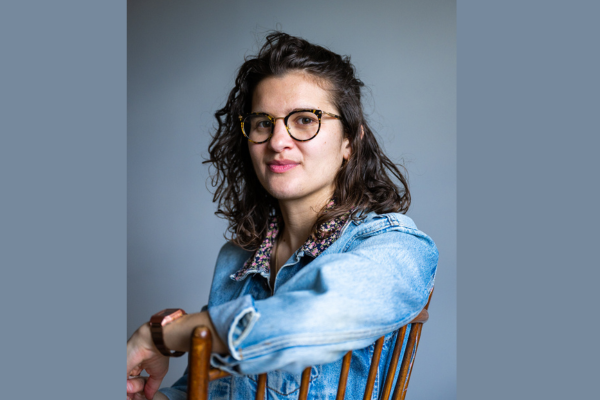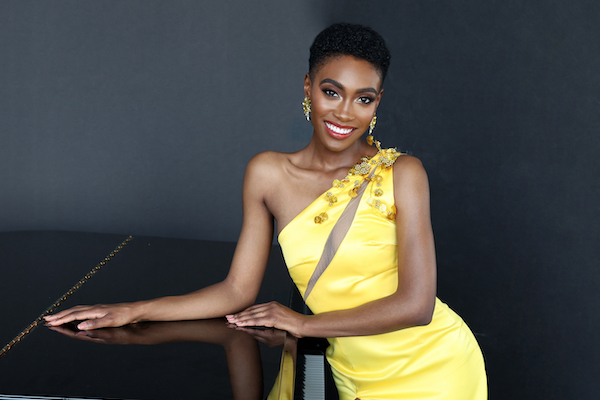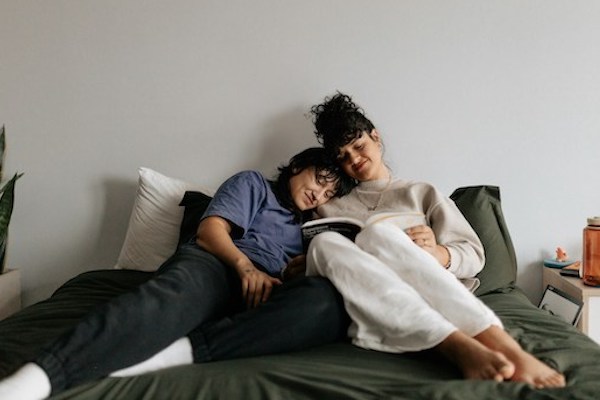
Combating Social Isolation with LGBTQ+ Elders at National and Local Levels
November 7, 2023
Transgender Massage Therapists Share Tips On How to Find LGBTQ+ Friendly Services
November 15, 2023Amelia Possanza’s debut book, Lesbian Love Story, tells the stories of six queer women (with an interlude that pays a touching tribute to Sappho) alongside memoiric musings of her own queerness. Through these women – Mary Casal, Mabel Hampton, Babe Didrikson Zaharias, Rusty Brown, Gloria Anzaldúa, and Amy Hoffman – Possanza shows the importance of love and community in times of crisis and beyond. For those “in the life,” as Mabel Hampton called it, stories are our legacy as sapphics.
Talking to Possanza is like talking to an old friend. We laugh about our own clumsy attempts to understand our sapphic identities (“Is it wearing Birkenstocks? Is it having a carabiner?”) as we ponder how to think critically about our culture at the same time that we are creating it.
“A huge part of being queer is feeling alone and different and wanting to find your community in the present,” Possanza tells me. “But you also want to understand, historically – who are your ancestors, and how do you fit in?”
Much of the research for Lesbian Love Story was done at the Lesbian Herstory Archives, a Brooklyn-based community archive co-founded in 1979 by Joan Nestle and Mabel Hampton. “The biggest challenge was that I did so much of this research during the pandemic, when places like the Lesbian Herstory Archives were closed or had limited access,” Possanza remembers. This only speaks to larger issues of accessing queer history in the United States – not only do localized collections bring up the issue of physical accessibility, the systemic erasure of queer people throughout American history itself requires us to examine our history with nuance.
Possanza believes that the work that co-founders did was inspirational: “It’s a symbol of sapphics taking care of lesbian stories, instead of those stories being filtered through flashy headlines where those people aren’t getting the chance to speak for themselves. This work was done out of the desire for these stories to be preserved in a way that wasn’t dictated by law enforcement or the media. It’s lesbians taking care of lesbian stories. A beautiful display of lesbian love that isn’t sexual, but romantic in its own right.”
Beyond that, the evolution of queer culture in the global West, particularly through language, makes it difficult to find our ancestors in retrospect. “What does the word ‘love’ mean?” Possanza asked herself. “I’m looking for these romantic love stories because they make it obvious, but all of my research made me question that. How can we look at history and embrace people and claim them as our ancestors without claiming identities to them that they would have rejected or wouldn’t have even known about, when we only have letters, papers, and stories to go on?”
Possanza says that in her book, “I tried to stick to people who themselves used the word ‘lesbian’ even if they use the word in different ways.” One example is Mary Casal, who was hired explicitly to write a “lesbian memoir,” though she herself did not use the word in her writing. Rusty Brown, a male impersonator who used words like ‘dyke’ and ‘lesbian’ to identify herself, could by today’s standards identify as transgender, but Possanza attests that it is “not up to me to decide retrospectively. What is the balance between drawing that through line and giving people space to feel comfortable in their identity?”
In present-day western society, sapphic representation still fights to be seen. And yet, in these historical voids, we look for shards of mirrors, hoping to recognize ourselves. This absence of representation “leaves room to either imagine lesbian stories or discount them entirely.”
“Identity can be fun and silly, and I think we all want to feel that. To me, being a lesbian is not putting down marginalized people. The point of any identity is to understand and uplift others, especially those being denied their rights. Lesbian care work is not limited to lesbians.”





